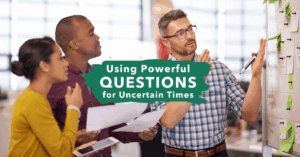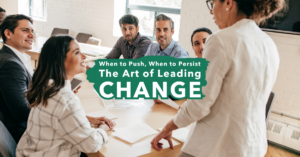I Knew. Why Didn’t I Listen?
As I was in line at the airport check-in counter, I was perplexed when I reached into my purse for my wallet, and it was not in the usual place. Nonplused, I reached deeper, still not finding anything. People behind me in the airport line shifted uneasily due to the slow down.
I stepped out of the line to search, with annoyance and a sense of panic growing. I dumped the purse but no wallet. I patted my pockets. Nothing there. I tried my backpack and came up empty. Yet it was clear that I had traveled the 75 minutes to the airport and would have to cancel and reschedule my flight, travel home to retrieve my wallet and ID and make the embarrassing call to my client that I’d miss the first part of our three-day meeting.
Back to the car and a scramble to pay the parking fee with the emergency money I kept for just these moments. I headed back north where on my drive, I kicked my self (mentally of course) over and over and over again. But my biggest frustration was not all the hassles I had caused myself. It was that I knew something was amiss when I pulled out of my drive and failed to listen to that “little voice” that told me to go back into the house and check one more time.
On the drive home I thought about all the other times I had ignored that internal voice and how often it was at my own peril, for far too often, I would have been much better served to give credence to that internal GPS and my personal intuition.
Too often we call this phenomenon of knowing something without knowing how we know it a “feeling”. It is our intuition kicking in and there are many times we absolutely should heed its call. And there are other times we should be a bit more cautious about trusting these flashes of knowing. Let me explain.
What is Intuition?
Intuition is “sense” or “feeling” about something. It seems to arise out of nowhere and rather quickly at that. While it appears to come out of nowhere, scientists (Epstein / Hogarth) believe that it emerges from a bank of learned responses, honed over time. While we frame intuition as a feeling, it is actually a form of knowledge that arises when our unconscious mind accesses past experiences and a lifetime of learning, quickly assesses a situation and produces a lightning-fast response. Intuition is not magic; it is instead the ability to understand something with lightning-fast speed and without conscious reasoning or thought. When considering intuition, we must keep in mind that our unconscious brain activity is real, even though we are unaware of it.
In the case of my airport snafus, my unconscious mind quickly processed, even before I pulled out of the drive that morning, that I had failed to do my typical three-point check before I travel. #1 – Do I have my PC? #2 – Do I have my phone? #3 – Do I have my wallet? My intuition set off alarms that I had failed this routine, a pattern firmly ingrained after years of business travel.
Yet even when my intuition kicked in with an uneasy feeling that something was wrong based on a break from learned behaviors, my “rational” brain overrode it. I told myself I was being silly. That I had packed the night before and all was good. That I was a seasoned traveler who did not make rookie mistakes. As such, I continued down the road.
Had I given credence to my intuition, I would have lost 5 minutes to do one last check. Not heeding my intuition cost me the better part of a day and innumerable hassles.
Here is how Psychology Today describes intuition:
Often referred to as “gut feelings,” intuition tends to arise holistically and quickly, without awareness of the underlying mental processing of information. Scientists have repeatedly demonstrated how information can register on the brain without conscious awareness and positively influence decision-making and other behavior. Psychologists believe that intuition relies on powers of pattern-matching, as the mind combs experience stored in long-term memory for similar situations and presents in-the-moment judgments based on them.
How Does Intuition Work?
How does this “knowing without thinking” happen? I believe we dismiss intuition because it is less rational and less visible than “thinking” or the deliberate, analytical, seemingly rational way we have been taught to lean into to make decisions. Our culture teaches and values this more deliberate way of thinking, more rational and deliberate, as more accurate.
Yet in Blink: The Power of Thinking Without Thinking, Malcolm Gladwell (2005) teaches us that there are two different types of ways we process information and make decisions: blinking – when intuition is used, and thinking – when an analysis is performed. His book is filled with real-life examples of experts across domains, whose “intuition” can assess a situation in seconds and outperform more complex and time consulting “rational” analysis.
For example, he cites the case of Evelyn Harrison and Thomas Hoving, experts in Greek sculpture and art, who immediately spotted a sculpture selling for $10 million as a fraud. Their analysis happened “in a blink” and contradicted the “evidence” of x-rays and other expert testimony. Their intuition told them that “something was just not right”. While their intuitive conclusion happened quickly, the bank of knowledge that allowed them to know that (in a blink) without knowing exactly why only happened due to deep expertise accrued over decades.
“There can be as much value in the blink of an eye as in months of rational analysis.”
Malcolm Gladwell
When is Intuition Our Friend?
As with my airport snafu, intuition can be extraordinarily helpful in situations which have occurred often enough to create patterns in our mind. Those that study decision-making and intuition note that intuition is merely the speedy processing of information based on past experiences and outcomes. It can help when facing complex decisions with no one clear outcome, as the mind can scan the complexities and then make a decision from the “gut” which is nothing more than a lifetime of internalized learning.
As such, it is helpful with “known” or “familiar” complexity. It is what helps mechanics intuitively know what is wrong with your car based on the slightest piece of evidence. This “automated” decision-making is what enables experienced dentists (Nalliah 2016) to make fast and good decisions, most often superior to others who took more time and used more “rational” thought. Drawing on their years of deeply ingrained wisdom, these experienced dentists could both outperform others and could also do it much more quickly relying on intuition.
When Does Intuition Trip Us Up?
The fact that intuition is based on past experiences and learning gives us some big clues here about when to mistrust our “inner voice”. Here are some instances:
- When we are learning something new, which requires conscious thought, and by its nature means we have yet to amass the experience necessary for initiative decision making.
- When our past experiences or underlying beliefs undermine the outcomes we are seeking. There is perhaps no better example than in making a hiring decision. Whether due to our human wiring to be drawn to “people like us” or subconscious beliefs about race, gender, disability, or behavioral style, intuition may not allow us to make the best hire and may instead, lead us to the hire that is the most similar to ourselves.
From Hogarth (2010):
Intuition helps us survive by providing fast responses that, usually, offer an appropriate, immediate action to address a situation. Such responses rely heavily on “cultural capital,” learnings specific to the environment in which we find ourselves.
While this usually helps us, it can lead to bias and prejudice in our decision making – based on religion, culture, social, moral, and even political environments – and may need to be countered by rational thinking.
Indeed, “intuition can be explicitly educated,” says Hogarth. By changing the content and environment surrounding our learning, we can lean toward more accurate and less biased, intuitive judgments.
Can You Power Up Your Intuition?
The short answer is yes. However, since intuition flows from expertise, it may take a while. And because it is domain-specific, intuition is not a skill that applies universally. My husband, who has great mechanical skills, has much better intuition about anything with moving parts, gears, and motors than I ever will. I have decades of experience with people and groups and can intuitively know where a group is and what will help them move forward in ways that very few others can.
It is not just time alone that hones intuition. It arises from a deep knowing where, in those situations, there is a robust feedback loop and we begin to learn the nuances of that type of situation. In addition to thousands of hours with groups, I’ve been observed, offered feedback, sought feedback, and studied other’s work with groups. To the extent that I have done this repeatedly over time, that knowledge has become deep-seated and I’m able to access and use it quickly and easily – almost it seems, magically.
In addition to doing the work over a period of time and receiving feedback, here are a few other things that can jump-start your intuition:
- Meditate – This will enable you to become more aware of your thoughts. With more awareness comes a better ability to discern when and how they are shaping your thoughts, actions, and decisions.
- Capture Your Insights in Writing – This is an easy way to accelerate the feedback necessary for intuition. As you encounter situations, journal about the situation, your actions, and the results.
- Listen to Your Body – Be more attuned to your body when intuition appears. How does it show up for you? What happens when you listen to your intuition? What happens when you ignore it?
- Explore– Ask yourself, “What about this situation might be different than the experiences my intuition is drawing from?” Discern if your intuition is an accurate indicator or an aberration.
What to Explore More?
If so, you might want to read some of these books on the topic:
- Blink: The Power of Thinking Without Thinking – Malcolm Gladwell
- Educating Intuition – Robin Hogarth
- The Myth of Experience: Why We Learn the Wrong Lessons, and Ways to Correct Them – Emre Soyer and Robin Hogarth
- Flow: The Psychology of Optimal Experience – Mihaly Csikszentmihalyi
- Risk Savvy: How to Make Good Decisions – Gerd Gigerenzer
- Gut Feelings: The Intelligence of the Unconscious – Gerd Gigerenzer
- Thinking, Fast and Slow – Daniel Kahneman
- Unlocking Leadership Mind Traps – Jennifer Garvey Berger




